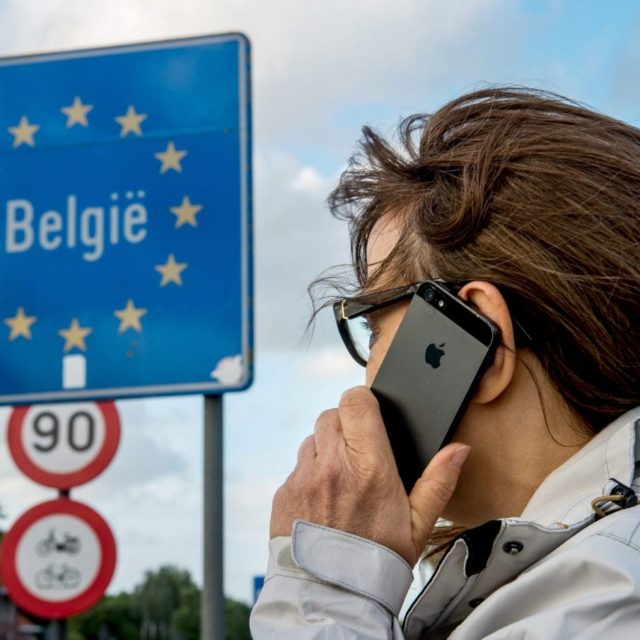Elderly people and those with a disability “must not be left behind” in Europe’s rush to digitilization, an international conference on transport mobility was told.
The conference heard that new technologies such as artificial intelligence will have a crucial role to play in transforming Europe’s transport eco system.
But, in any debate about the future of transport, the needs of specific groups in society should not be overlooked.
That was one of the messages to emerge from a session on “smart solutions and society” on the opening day of the Transport Research Arena (TRA) conference in Lisbon. The future of transport will come under the spotlight at the event which is also a chance for innovators to showcase their projects.
Panellists were asked if, in trying to modernise the transport sector, there was a risk that certain groups, such as the elderly and people with disabilities, might be “left behind.”
Herald Ruijters, of the European Commission, said it was vital this did not happen, adding, “Of course, all this that we are talking about here at this event has to be inclusive because we cannot leave out half the population.”
Anke Kaysser-Pyzalla, chair of the DLR executive board, agreed, saying, “Digitilization must be of benefit to all.”
Another speaker, Mario Filipe Campolargo, Portuguese Secretary of State for Digitilization and Administrative Modernisation, commented, “We have to remember that not everyone can cope with the digital revolution and these people might include the elderly so we need, of course, to take that board.”
On the issue of inter-operability in transport he and others were asked how best to integrate the elderly and disabled.
Campolargo suggested that “innovative” solutions” such as providing free transport for the elderly could also be worth considering.
He added, “The focus must be on the user, the citizen and mobility is crucial to get smart cities up and running.”
Also speaking, Stephen Perkins, head of research policy analysis at ITF, argued that people living in rural areas should also benefit from what most expect to be radical and sweeping future changes in the transport sector.
For such people, he said “accessibility is the key” but this would necessitate “continued government support and subsidy.”
Perkins added, “We must get this issue on the political agenda. It could be an idea for the EU to ask national governments to come up with rural mobility plans in the same way as they have done so successfully with urban mobility plans.”
He added, “But, yes, it is important that all the advantages from digitilisation and new technologies can be rolled out to everyone.”
The debate was timely as it coincided with a survey by the TRIPS project whose results were disseminated at the conference which is expected to attract over 2,000 people.
The EU-funded TRIPS project conducted a study which asked people with disabilities about their transport needs.According to the findings, persons with disabilities are “open to using smart assistive technologies” such as augmented reality, robots and AI alerts.
“We should consider their seamless integration for improving the overall levels of urban transport accessibility,” says TRIPS.
When designing future transport systems, attention should be paid, it says, to the “most frequently mentioned complaints”.
These include getting on and off the means of transport, reaching the transport mode, using station facilities and travel delays.
The survey involved 553 persons with disabilities living in 21 EU countries and some of the survey topics were touched on during the debate on Monday.
Ruijters said the challenges facing the transport sector were “huge”.
He cited the health pandemic as an example where “instant data” was unavailable, saying, “We see the same happening in Ukraine and also with climate change.”
He said some believed the 55 percent emission reduction target by 2030 should be more ambitious not least as emission rates for the transport sector were still increasing.
More, he noted, also needed to be done to achieve other objectives such as a “seamless flow” of data and smooth ticketing.
He asked, “Do we have the infrastructure yet in place and do we have the budgets to put these things into practice?”
He added, “We agree with the targets, yes, but do we agree on the means to get there? Given the urgency involved here, these points will be crucial in the coming years.”
“One thing is for sure: there is no time to lose and we have to find a way of breaking through any obstacles which stand in the way of such objectives being realised.”
Another panellist, Evangelos Bekiaris, director of the Helenic Institute of Transport, invited the packed audience to consider what he called “the elephant in the room”.
This, he argued, were the obstacles standing in the way of policymakers achieving inter-operability in the transport sector.
He said, “What is needed is a paradigm shift for us to achieve full integrated mobility.The technology is there but it must be used wisely and the deployment of smart technologies will be the key.”
Francois Regis Le Tourneau, chair of ALICE, disagreed with some speakers at an earlier session who had said Europe’s inter-operability objectives were “on track”.
He said, “We are not yet where we should be or want to be including in terms of the expected reduction in emissions nor in the adoption of new technologies.”
He added, “What we need therefore is a transformation, a radical change. I am not sure we can do it tomorrow but we must try.”
Arguing against government cuts to national transport budgets, Perkins added, “We will only get the modal shift we seek by promoting mobility but one challenge is not to fall into the trap of thinking you can something for nothing.”
He added, “We already get a huge amount of automated data, for example, data that is tracking people moving but we also need to know how accurate this data is and that it means what we think it means. We need to correlate it with what is happening on the ground.”
The first day of TRA 2022 was also marked by the exhibition’s official inauguration.
With over 7,000 m², this area will be, throughout the next four days, the home of major national and international references in the mobility sector. The exhibition area includes several areas, such as an interactive space for innovative projects, start-ups, International Partners and another one dedicated exclusively to national entities, called Portugal Corner.
TRA is the largest European research and technology conference on transport and mobility, bringing together Portuguese and international experts to discuss the future of mobility.
TRA 2022 takes place at the Lisbon Congress Centre until the 17th of November.




